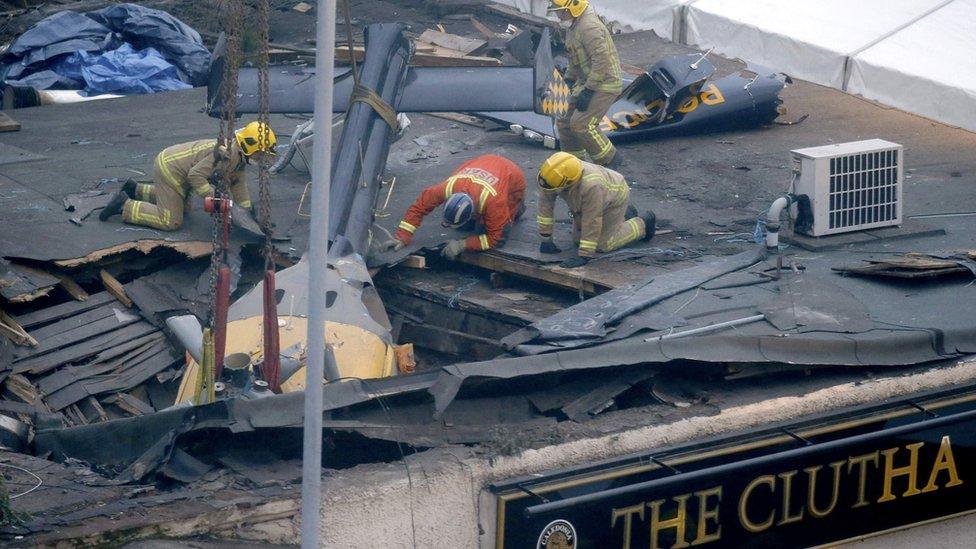Clutha Inquiry: Clutha pilot had previous fuel warning light
- Published
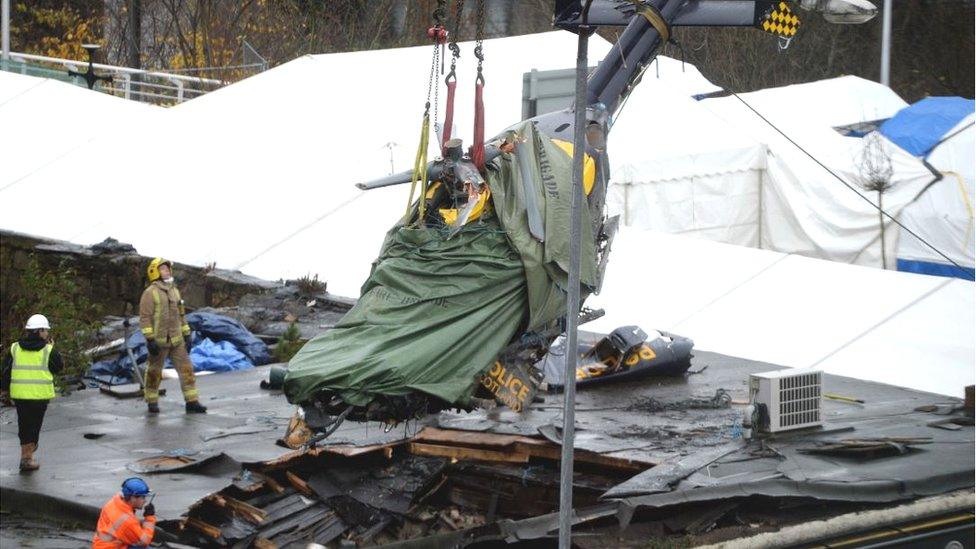
Air Traffic Control were unaware of any concerns about the flight
A police observer has told an inquiry he was in a police helicopter with Clutha crash pilot David Traill when a red fuel warning light came on.
PC Alan Graham was in an aircraft with second observer PC Niall McLaren on a previous flight as the helicopter came in to land, 200ft from the ground.
PC Graham said Mr Traill acknowledged the warning and seemed "happy with his fuel calculations".
He said a second warning came on when the helicopter was on the ground.
Two police observers, constables Tony Collins and Kirsty Nelis were killed along with the pilot, David Traill, when their helicopter crashed into the roof of the Clutha bar in November 2013.
At the fatal accident inquiry into the tragedy, witness PC Graham was asked how he regarded David Traill as a pilot.
He replied: "Very competent."
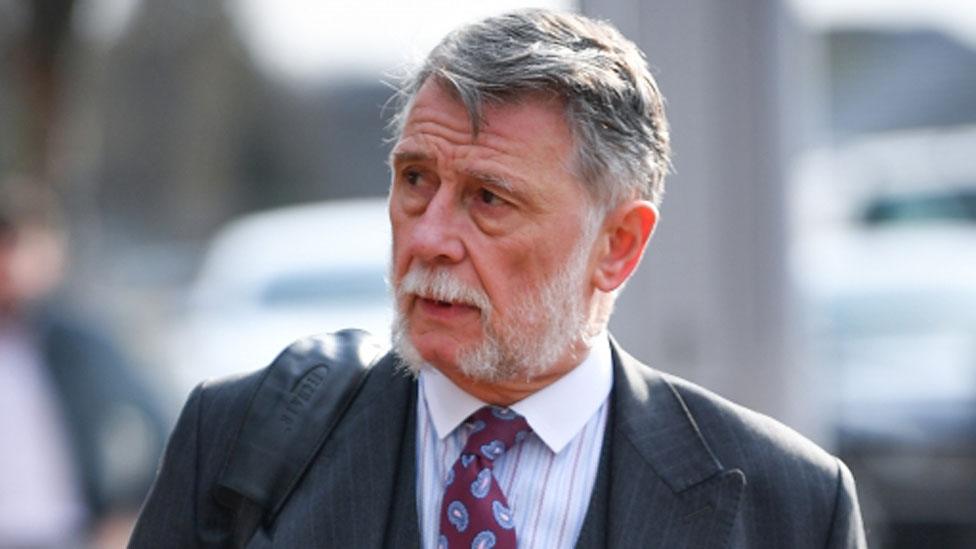
Donald Findlay QC is representing the family of Robert Jenkins
PC Alan McLaren, 45, earlier told the inquiry he agreed that Captain Traill was "a stickler for procedure".
PC McLaren said he had also flown with Captain Traill.
He said caution lights were "quite routine" but that he had only seen the warning lights come on twice.
Once was a low fuel warning activated on approach to base. The other warning related to rotor speed.
Donald Findlay QC, representing the family of victim Robert Jenkins, asked PC McLaren if he was aware at the time of the crash of the rules for landing if there was a low fuel warning.
The witness told the inquiry he understood the pilot was instructed to land within 10 minutes.
The inquiry earlier heard evidence from air traffic controller Andrew Campbell.
He said Air Traffic Control at Glasgow Airport had no concerns about the flight.
The first they knew something had gone wrong was when they received a call asking if they knew about a helicopter crash in Glasgow city centre.
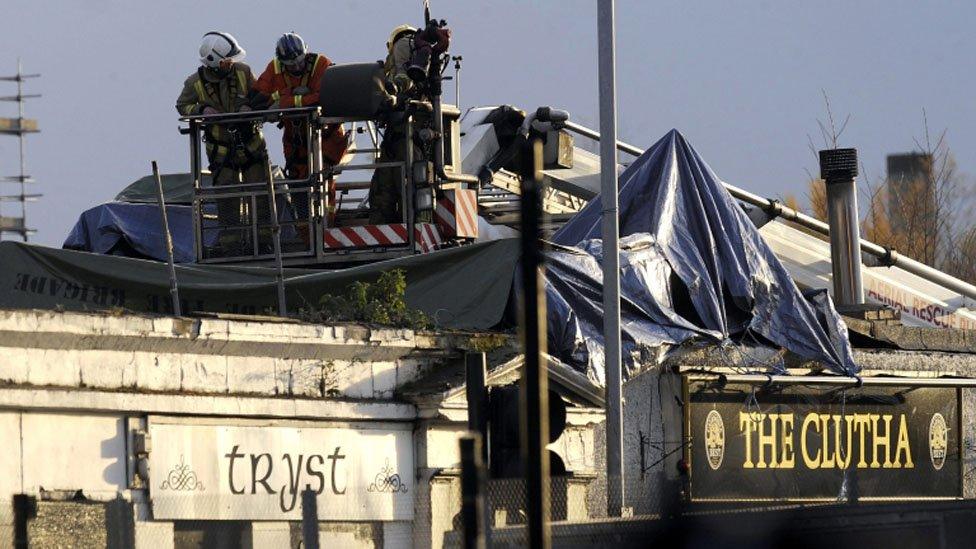
Ten people died in the crash
Mr Campbell spoke to the police helicopter towards the end of its final journey.
He told the inquiry there was nothing in the pilot's voice to cause concern.
Mr Campbell, 50, was based at Glasgow Airport working for National Air Traffic Services (NATS) on the night of the crash on Friday 29 November 2013.
He said that at 22:05 the helicopter pilot David Traill contacted air traffic control when the aircraft was five miles north of Lanark.
No Mayday
The pilot informed air traffic control the aircraft had cleared Edinburgh and requested permission to enter air space in Shotts which is controlled because of the proximity of a prison.
Asked by Gordon Lamont, for the Crown, if he had any concern about the flight, the witness replied: "None at all."
The pilot contacted air traffic control again at 22:18, after the helicopter completed its task in the Bothwell area and he requested permission to enter controlled air space over Glasgow city centre, below 2,000ft.
The communication ended just before 22:20.
Mr Campbell said there was nothing that gave him cause for concern about the flight or in the pilot's voice and tone. He also told the court he did not hear any audible gongs and there was no Mayday call. He said everything was "standard".
Clutha helicopter crash: how the events unfolded
Asked when he first realised there was a problem, the witness said: "About 10 or 15 minutes after I thought it had landed we got a phone call from the supervisor at Prestwick control asking did I know anything about a helicopter crash over the city centre."
Mr Campbell said he would have had no means of knowing about a problem on board the police helicopter unless the pilot had made a PAN - an urgency call - or a Mayday call.
The inquiry then heard that police observers on board were "encouraged" to point out anything to the pilot they felt was worthy during a flight, such as cautions and warnings.
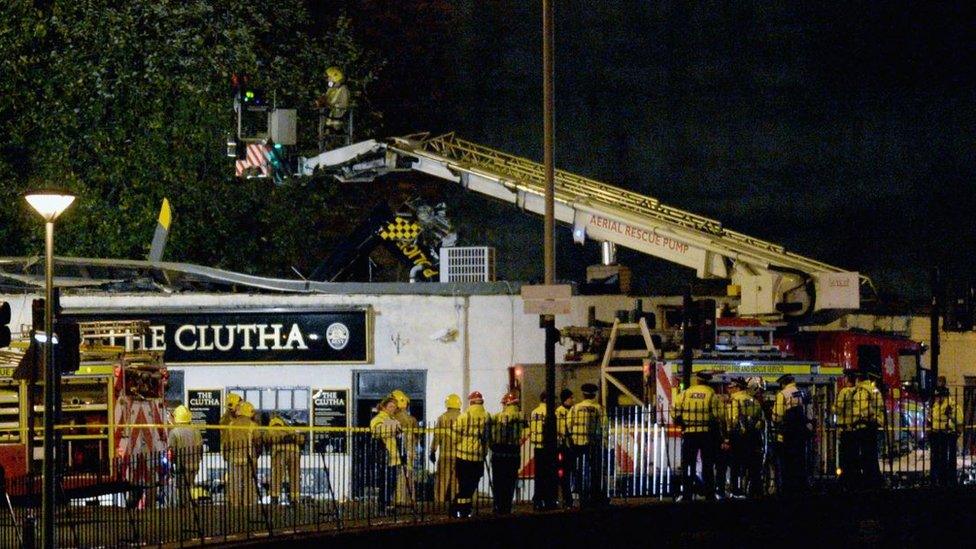
Chief Inspector Colin McAllister, 56, was in charge of the air support unit at the police at the time of the tragedy.
Mr McAllister said if the the crew were "uncomfortable" or "felt the pilot was doing something unsafe" he would expect them to have a conversation about it.
Fuel warnings
Under cross examination by Donald Findlay QC, for the family of victim Robert Jenkins, Mr McAllister said the pilot had the final say over the flying of the aircraft and what the aircraft did.
Mr Findlay asked the witness what would have happened if the crew had expressed concerns to the pilot over the fuel warnings which were going off in the final stages of the flight and told him to land.
Mr McAllister replied: "The final decision is with the captain of the aircraft but I would absolutely expect him to land the aircraft in that kind of circumstances."

Clutha inquiry: The evidence so far

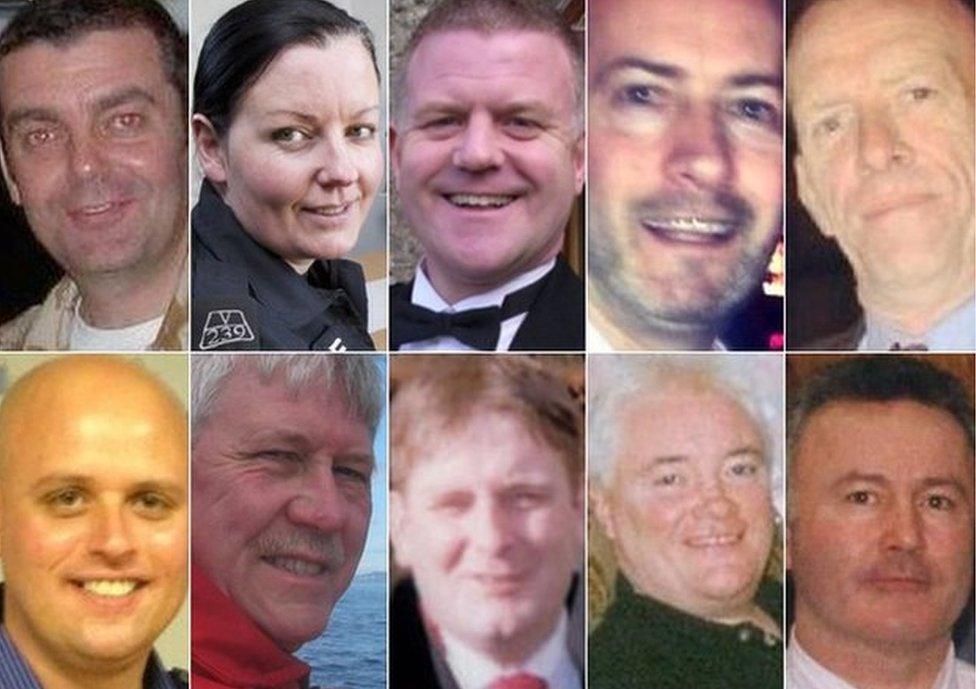
(Top: L to R) David Traill, PC Kirsty Nelis, PC Tony Collins, Gary Arthur, Samuel McGhee (Bottom: L to R) Colin Gibson, Robert Jenkins, Mark O'Prey, John McGarrigle, Joe Cusker
The inquiry has previously heard that the helicopter's pilot had received five low fuel warnings before the crash.
It has also heard that the aircraft did not have a flight recorder, which meant there was no data about when fuel warnings came on and the length of time they stayed on.
Pilot David Traill, 51; PC Tony Collins, 43; and PC Kirsty Nelis, 36, lost their lives in the crash along with seven customers who were in the bar on Stockwell Street.
They were Gary Arthur, 48; Joe Cusker, 59; Colin Gibson, 33; Robert Jenkins, 61; John McGarrigle, 58; Samuel McGhee, 56; and Mark O'Prey, 44.
The inquiry, which is being held at Hampden Park in Glasgow, continues.
- Published18 April 2019

- Published17 April 2019

- Published10 April 2019
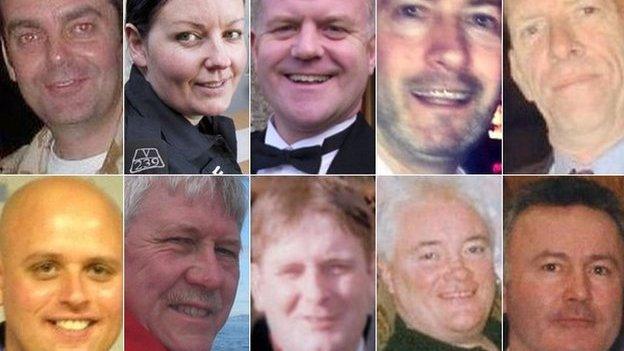
- Published8 April 2019
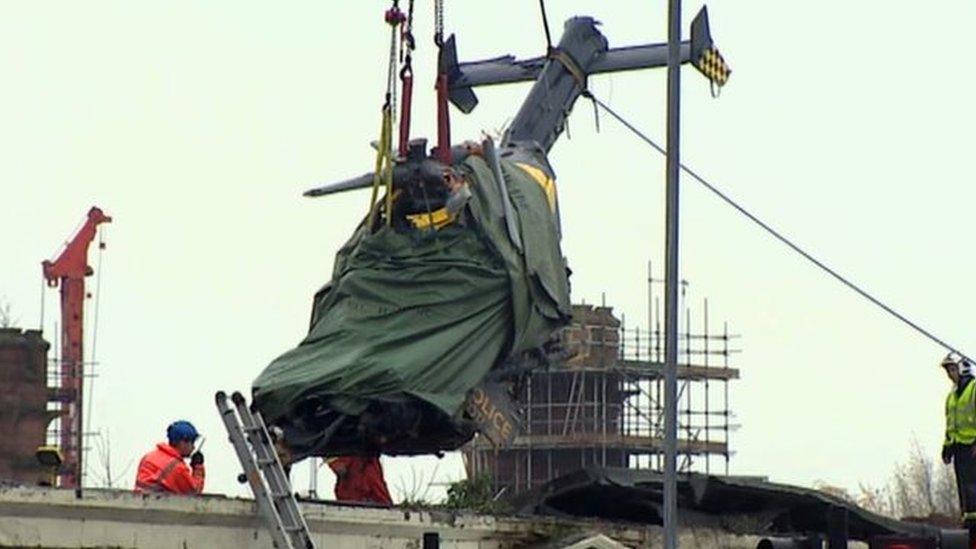
- Published3 April 2019
